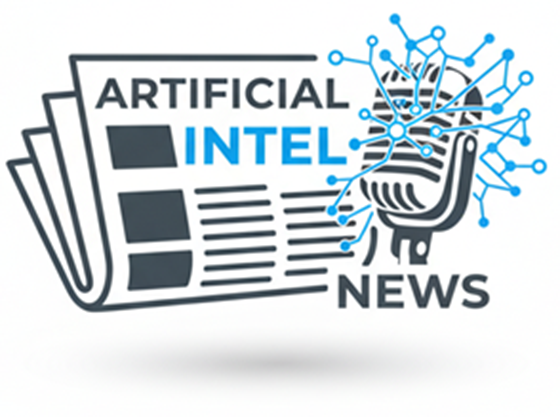AI Talent Marketplace Raises $350M to Scale Expert Training
A prominent AI talent marketplace recently closed a $350 million funding round at a $10 billion valuation to accelerate the growth of its domain expert network and build deeper reinforcement-learning infrastructure. The company—originally founded as an AI-driven hiring service—shifted quickly into a focused marketplace that matches specialized professionals with AI labs and enterprises for high-value model training work. This strategic expansion signals growing demand for trusted, domain-specific expertise during the training and deployment of foundational AI models.
What is an AI talent marketplace and why does it matter?
An AI talent marketplace is a platform that connects model developers with domain experts—scientists, clinicians, legal professionals and other specialized contributors—who provide curated guidance, labeled data, evaluation, and feedback essential to high-quality model training. Unlike general freelancing sites, these marketplaces vet experts for domain credibility and provide processes for integrating human insights into model development workflows.
Why it matters:
- Domain knowledge improves model reliability: Experts help models understand context, nuance and trade-offs that generic data cannot convey.
- Regulatory and safety alignment: Specialists guide dataset curation and evaluation practices to reduce downstream legal, ethical and safety risks.
- Faster iteration: On-demand access to verified experts shortens development cycles and improves model performance on real-world tasks.
This marketplace’s latest capital infusion will expand its talent roster, enhance matching systems, and build automated tools to scale operations—moves that reflect broader industry trends toward human-in-the-loop training and reinforcement learning from human feedback (RLHF).
How the company evolved: from hiring platform to domain expert marketplace
The company began as an AI-driven hiring platform but pivoted after recognizing that AI labs were starved for high-quality domain supervision rather than generic staffing. The core offering now focuses on:
- Curating a vetted pool of domain experts for model training tasks.
- Charging transparent hourly finder’s fees and matching rates for engagements.
- Providing tools and workflows for reinforcement learning and quality assurance.
Today the marketplace reports a roster of tens of thousands of experts across science, healthcare, law and other specialties. Contractors earn competitive hourly rates, and the platform claims daily payouts at scale—evidence of both demand and sustained operational throughput.
What the $350M will fund
The new capital will be directed at three strategic priorities:
- Network expansion: Recruit more verified domain experts across verticals where specialized knowledge is scarce and highly valued.
- Matching and systems engineering: Improve algorithmic and human workflows that pair experts with model teams, reducing friction and increasing match accuracy.
- Productizing RL infrastructure: Build software tooling that helps teams incorporate expert feedback into reinforcement learning loops, automating evaluation, dispute resolution, and iterative improvement.
These investments align with the broader industry push to institutionalize human feedback as a core part of model training and productization.
How domain experts change AI training outcomes
General-purpose datasets and crowd-labeled data remain important, but domain experts add value in several distinct ways:
1. Nuance and context
Experts provide subtle judgments—what the model should prefer, reject or prioritize in edge cases. That human taste matters when models make consequential decisions.
2. Trade-off calibration
When safety, fairness, accuracy and utility conflict, domain experts help define acceptable trade-offs in the context of specific tasks.
3. Real-world validation
Experts curate realistic evaluation scenarios and synthetic adversarial tests that expose model brittleness early in development.
4. Compliance and governance
Medical, legal and regulated domains require documentation, audit trails and justification—roles experts fill during model lifecycle activities.
Who uses these marketplaces?
Customers range from research labs and startups to large enterprises and AI product teams that need:
- Specialized annotation work (e.g., clinical note interpretation, legal reasoning)
- Reinforcement-learning feedback and reward modeling
- Expert evaluation for model benchmarking and deployment risk assessment
Large AI labs and leading product teams often allocate dedicated budgets for expert-driven model improvements because these investments reduce costly downstream failures and improve user trust.
Market signals and growth trajectory
The platform’s trajectory highlights several market signals:
- High willingness-to-pay for vetted domain expertise, reflected in premium rates and recurring engagements.
- Investor appetite for businesses that bridge human expertise with scalable software infrastructure for AI.
- Rising demand for reinforcement learning systems that can integrate complex human feedback at scale.
The firm has positioned itself to capture value in both the talent marketplace and tooling layers—an approach that could make it a critical infrastructure provider in the AI stack.
How this ties into AI infrastructure and data quality
High-quality human supervision complements investments in compute and model architecture. For a deeper look at how data quality drives model advances, see our analysis: The Role of High-Quality Data in Advancing AI Models. Likewise, the trend toward integrated tooling for model deployment and RL aligns with ongoing shifts in infrastructure investment explored in The Race to Build AI Infrastructure.
As teams focus on real-world utility rather than raw scale alone, platforms that accelerate human-in-the-loop workflows will likely play an increasingly central role. For perspective on broader strategic shifts in model development and what comes after scaling large language models, read The Future of AI: Beyond Scaling Large Language Models.
What are the business model levers?
Successful marketplaces monetize in multiple ways:
- Transaction fees and hourly rates for matches.
- Subscription or enterprise contracts for dedicated talent pools.
- Value-added software for RL operations and evaluation pipelines.
- Workforce financing and escrow to guarantee expert availability and quality.
Combining services and software helps create defensibility: deep rosters of trusted experts are costly to replicate, while integrated tooling increases switching costs for enterprise customers.
Risks and challenges
Market optimism is balanced by several tangible risks:
- Quality control: Scaling expert rosters without diluting expertise requires rigorous vetting and continuous evaluation.
- Regulatory scrutiny: Models trained with human judgment may still produce legally sensitive outputs—requiring careful documentation and governance.
- Competition: Other platforms and in-house teams might attempt to replicate curated workflows or vertically integrate expert services into broader AI offerings.
- Talent supply constraints: Certain niche fields have limited expert availability, which can inflate costs and slow scaling.
Addressing these challenges requires investments in platform trust, transparent audit trails, and product features that make expert interactions efficient and defensible.
How enterprises should approach hiring domain experts for AI
If you’re an engineering or AI leader considering engagement with an AI talent marketplace, follow this pragmatic checklist:
- Define the role of human feedback: annotation, reward design, evaluation, or domain supervision.
- Set measurable success criteria tied to product outcomes (e.g., reduction in false positives, improved clinical accuracy).
- Request detailed vetting and sample work from candidate experts before committing to long-term contracts.
- Insist on audit logs and explainability for expert-sourced training data and decisions.
- Design pilot projects with clear timelines and metrics before scaling engagements.
These steps help teams avoid overspending on ill-defined expert tasks and ensure that human inputs directly improve model performance and user outcomes.
What to watch next
Key indicators that will show whether this marketplace successfully scales include:
- Expansion of verified experts into new, high-value verticals such as biotech and regulated finance.
- Adoption of RL tooling by enterprise customers and integration with MLOps pipelines.
- Retention rates and average engagement duration with domain experts—metrics that reflect real business impact.
- Partnerships with leading AI labs and platform providers that embed the marketplace into broader development workflows.
Conclusion
The recent $350M raise underscores a clear industry beat: human expertise remains indispensable as AI systems tackle more complex, high-stakes tasks. Marketplaces that can reliably source, verify, and integrate domain experts while offering software to operationalize that expertise will likely become foundational pieces of the AI ecosystem.
For organizations building or buying AI models, investing in trusted human-in-the-loop processes is no longer optional—it’s a competitive differentiator that improves model safety, compliance and real-world performance.
Next steps: how to evaluate an AI talent marketplace
When evaluating providers, prioritize platforms that offer:
- Transparent vetting and credential verification for experts.
- Clear pricing and SLAs for engagements.
- Integrated tooling for incorporating expert feedback into RL and validation loops.
- Auditability and documentation suitable for regulated domains.
Companies that combine a deep talent network with robust tooling stand the best chance of delivering consistent, scalable improvements to AI models.
Call to action
Want to scale your AI models with vetted domain expertise? Subscribe to Artificial Intel News for ongoing analysis and practical guides on integrating human feedback into AI workflows. Contact our editorial team to request a tailored briefing on best practices for hiring domain experts and building RL-ready tooling.






